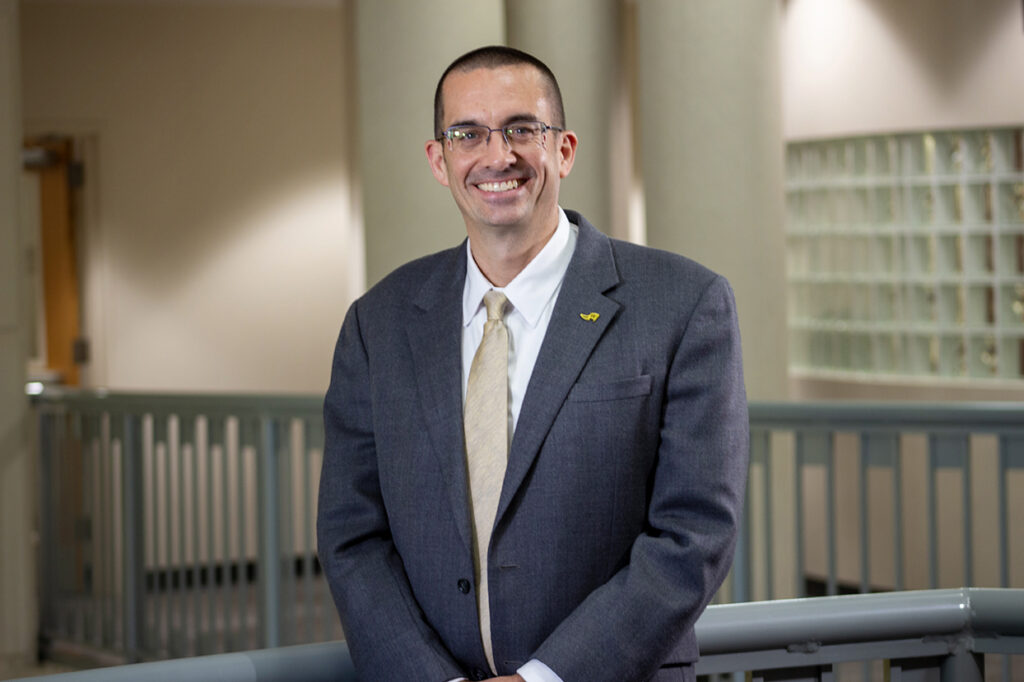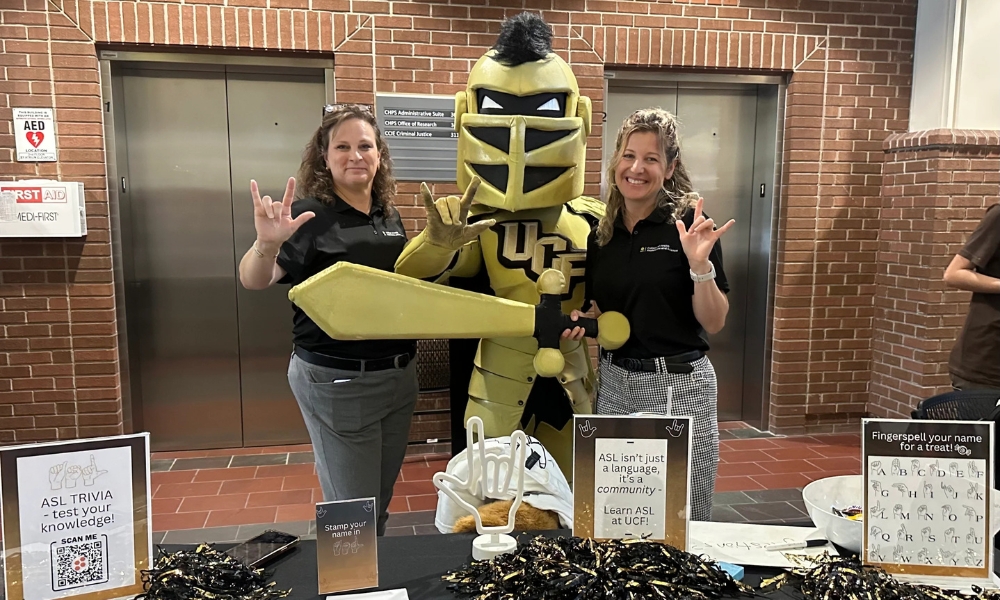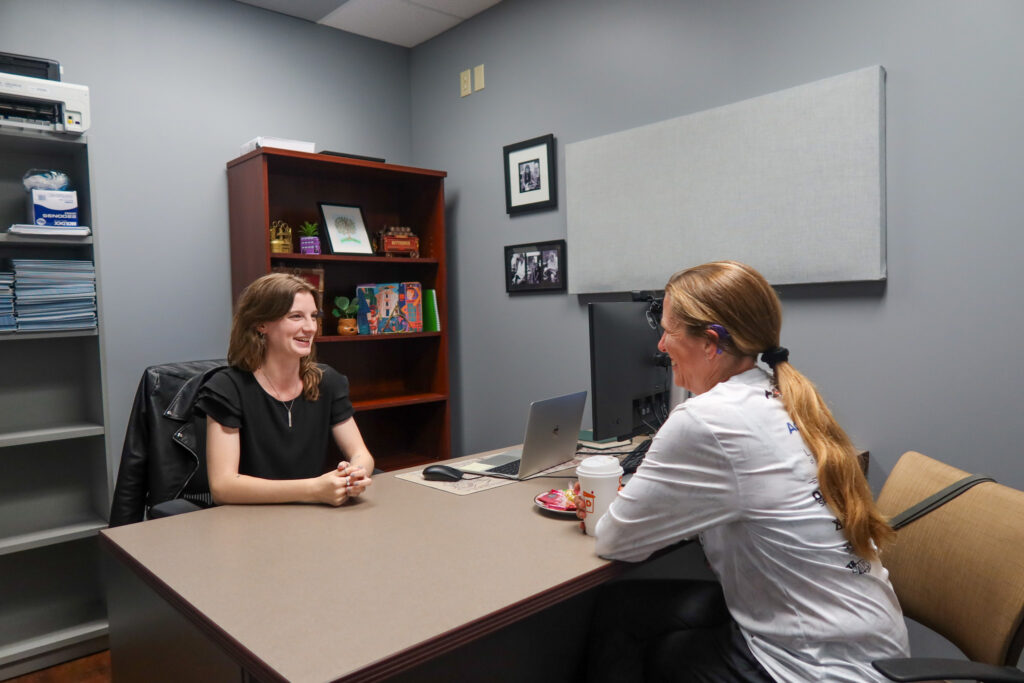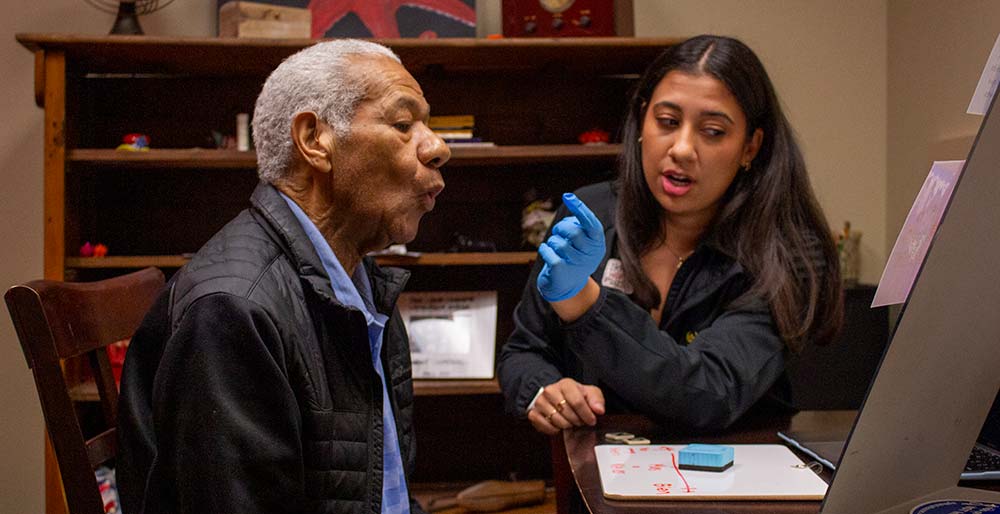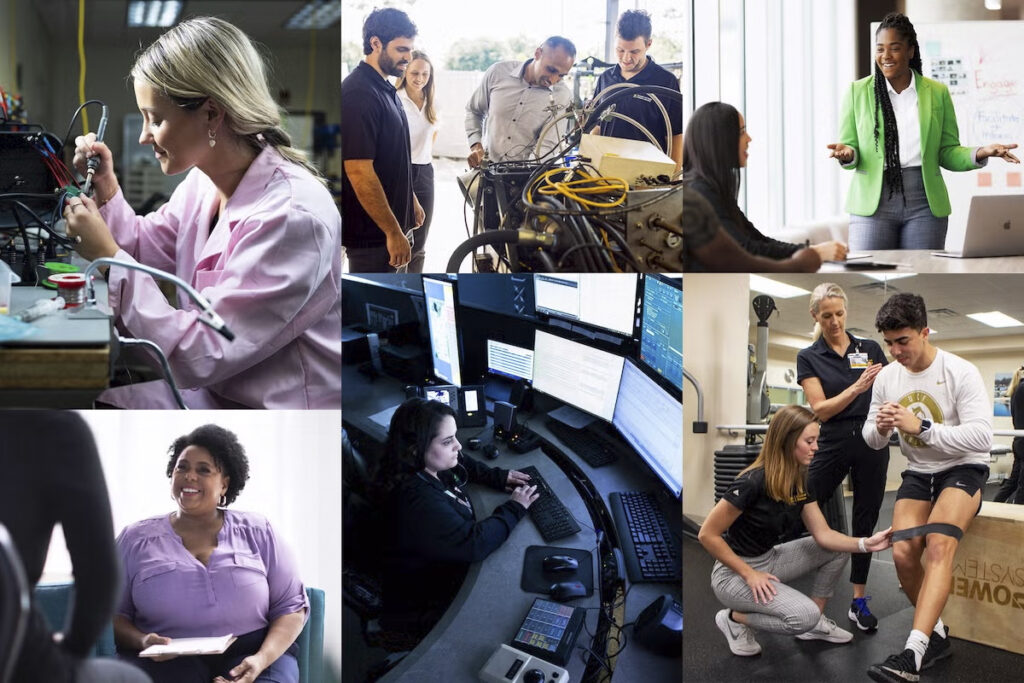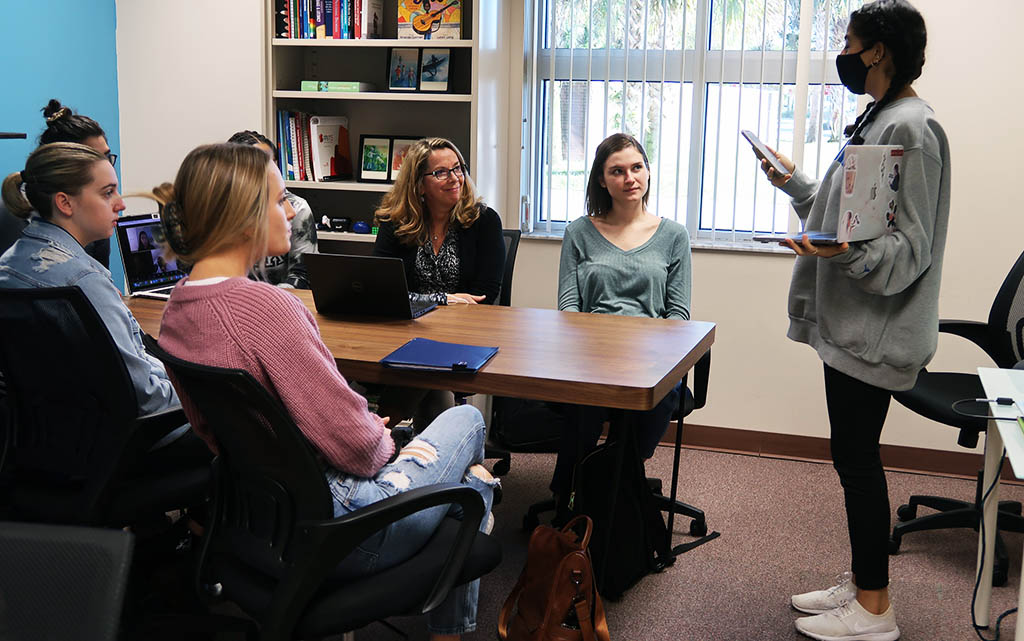
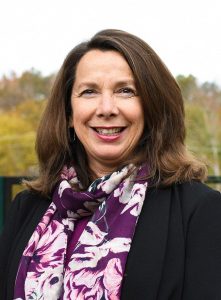
Nancy McIntyre, an assistant professor in the School of Communication Sciences and Disorders, leads the new Reading and Oral Comprehension in Kids & Teens Lab (ROCK&T Lab), where she conducts research and develops targeted interventions for students with autism spectrum disorder (ASD).
McIntyre has been passionate about finding out the hows and whys of the learning process ever since she realized that not everyone learns in the same manner – something she gleaned by interacting with relatives who had challenges communicating and learning. McIntyre discovered that even though they had some obstacles to overcome, they found another way around.
Typically, McIntyre says, when school-aged children receive a diagnosis of ASD, they receive an individualized education plan (IEP) that outlines goals for them. The IEP also outlines accommodations, modifications and support that must be provided to the child to help them succeed.
And although goals to develop literacy skills are often not included in an IEP, McIntyre has discovered through practice and research that many children with ASD have the ability to improve these skills at an early age if given proper instruction. Through her research, she hopes to develop new techniques and interventions that educators can use to improve outcomes for their students with ASD.
The brain is lovely and mysterious, McIntyre says. Its neuroplasticity – or its ability to modify connections or re-wire itself – not only allows us to develop from infancy to adulthood, but also to recover from brain injury.
It’s that adaptability that McIntyre hopes to harness in developing new methods to teach language and literacy skills to children and adolescents with ASD who may not have reached their full potential yet.
When McIntyre was a child, one of her favorite activities with her father was plotting out the best route on a map whenever they embarked on a road trip. He knew how to get there, McIntyre said, but he also knew that the exercise helped develop his daughter’s critical thinking skills.
“Our brains are like a map,” McIntyre says. “Just because one route did not get you there does not mean another route can’t.”
It’s that philosophy that keeps McIntyre on the road to researching the best methods for teaching students who learn differently and may need their own map to success.
McIntyre started her comprehensive research on language and literacy in 2009 as a doctoral student and graduate research assistant at the University of California, Davis while earning her Ph.D. in Education, Learning and Mind Sciences. But her interest in those who learn differently dates to her days as a public-school teacher, 20 years ago.
One of her earliest research roles was as an experimenter on a two-year, NIH-funded pilot study of a virtual reality public speaking task and its relation to differences in social attention, or how children and adolescents with ASD and/or attention deficit hyperactivity disorder (ADHD) attended to, and engaged in, conversations. The study fueled her desire to become more involved in the research process, and later, she was named the project coordinator for a longitudinal $1.6 million study funded by the U.S. Department of Education investigating social attention and cognition in children with autism and/or ADHD and the relation to academic achievement, social communication, and emotional outcomes.
To better prepare her to work with this population, she completed a postdoctoral research fellowship in autism with the Frank Porter Graham Child Development Institute at the University of North Carolina at Chapel Hill, and prior to that, a postdoctoral fellowship and clinical directorship in reading disabilities at UC Davis.
McIntyre joined UCF’s School of Communication Sciences and Disorders during the pandemic last year. Since COVID-19 had curtailed any in-person research and interventions she had planned, she pivoted her research to instead focus on parents of students with ASD. She wanted to ascertain their perceptions about the literacy support their children were receiving during the pandemic, compared to pre-pandemic times. She and a colleague are currently assessing data from 400 parents across the country and will present their findings at the Council for Exceptional Children Convention in Orlando this January.
Though she is relatively new to higher education, McIntyre has authored or co-authored 26 refereed journal articles, three book chapters and encyclopedia entries. She has presented at over 50 conferences throughout the country and internationally. Her expertise in language and literacy skill development in children with autism has earned her multiple awards and fellowships— most recently a LEND Fellowship from UC Davis, and a Meritorious Submission Award from the American Speech and Hearing Association.
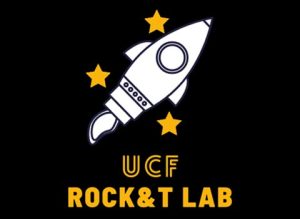 In the ROCK&T Lab, McIntyre mentors the next generation of clinicians and educators by involving students in her research and advising on evidence-based practices that best support learning in the ASD population.
In the ROCK&T Lab, McIntyre mentors the next generation of clinicians and educators by involving students in her research and advising on evidence-based practices that best support learning in the ASD population.
This spring, McIntyre and her team in the ROCK&T Lab will partner with teachers at local elementary schools to implement a reading intervention. McIntyre hopes the lessons learned from the study can lead to an improved understanding of individualized education programs that foster independence.
“We are taking an evidence-based reading comprehension intervention and adapting it for younger students with autism who have lower language and cognitive skills,” McIntyre says.
The intervention will build reading comprehension through systematic and explicit instruction in linguistic comprehension skills starting with recalling details from narrative and nonfiction books, then as the students become more comfortable with the process, their teachers will build more abstract concepts into the interventions.
As a former teacher, McIntyre understands the importance of developing partnerships with teachers and values their commitment to improving educational outcomes for their students.
“When I was a teacher,” McIntyre said, “I looked for every opportunity I could to help my students succeed. I see the same dedication in the teachers that we are partnering with for this intervention study.”
This summer and next fall, McIntyre will collaborate with Jeanette Garcia, an assistant professor in the Department of Health Sciences, on an internal SEED Funding grant. The grants, made possible through the Office of Research and the Office of the Provost, are aimed at facilitating interdisciplinary research across the university likely to attract external funding while enhancing the visibility of UCF.
McIntyre and Garcia will test the feasibility and efficacy of combining mindfulness-based judo with reading instruction for fourth-sixth graders with ASD.
“We hypothesize that completing a judo session prior to engaging in academic instruction will increase the students’ ability to focus and learn,” McIntyre says.
There is an urgency to the work McIntyre is doing. ASD rates have been growing for the past 20 years, according to the Centers for Disease Control and Prevention. In 2000, 1 in 150 children had an ASD diagnosis. Newly released data from the CDC indicates that 1 in 44 children were diagnosed with ASD in 2021. As these children age, they will need support and skills to flourish in life, without such heavy reliance on their parents.
“We have already seen positive data from our research that shows literacy goals should be integrated as part of every child’s curriculum, regardless of their abilities or what path their internal GPS tells them to take,” McIntyre says. “By talking with the parents of children with autism and their teachers, we hope to develop more interventions that can help them succeed, not only in the classroom, but in life.”

